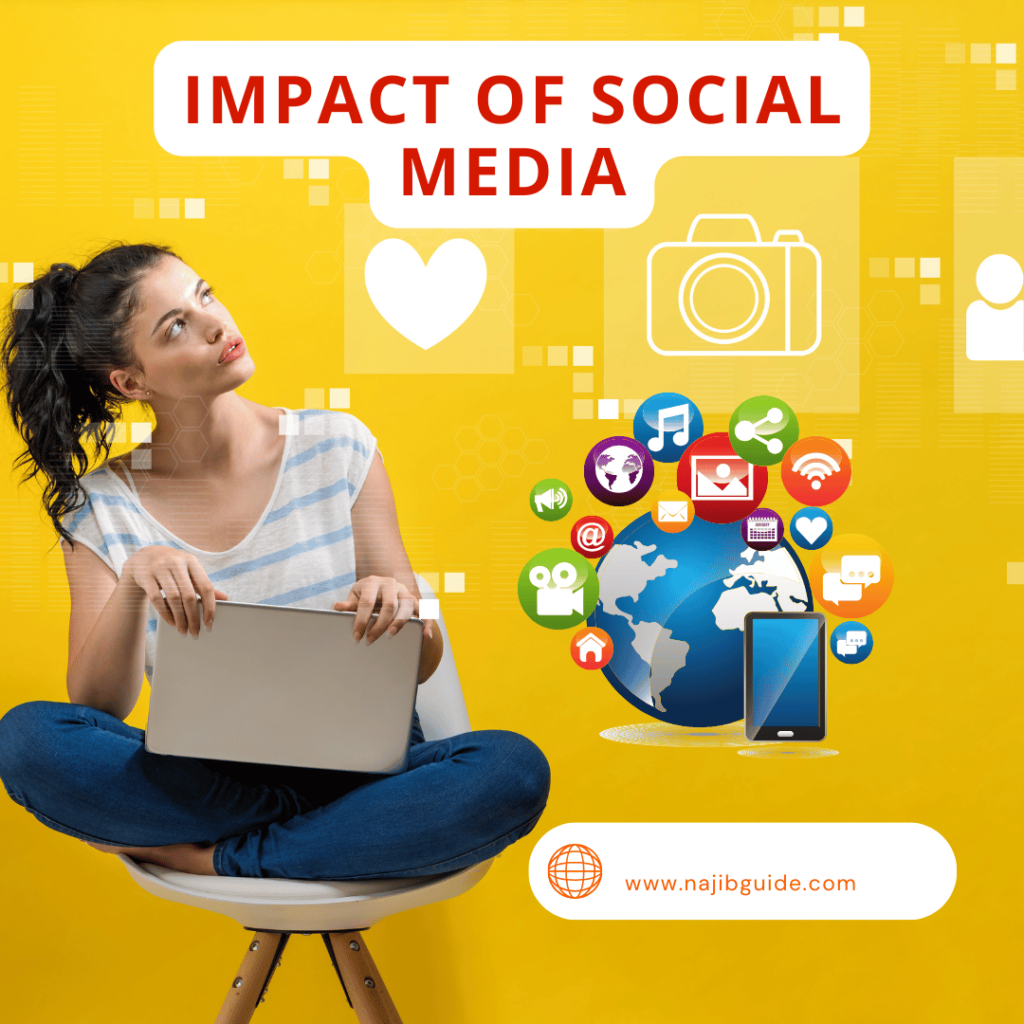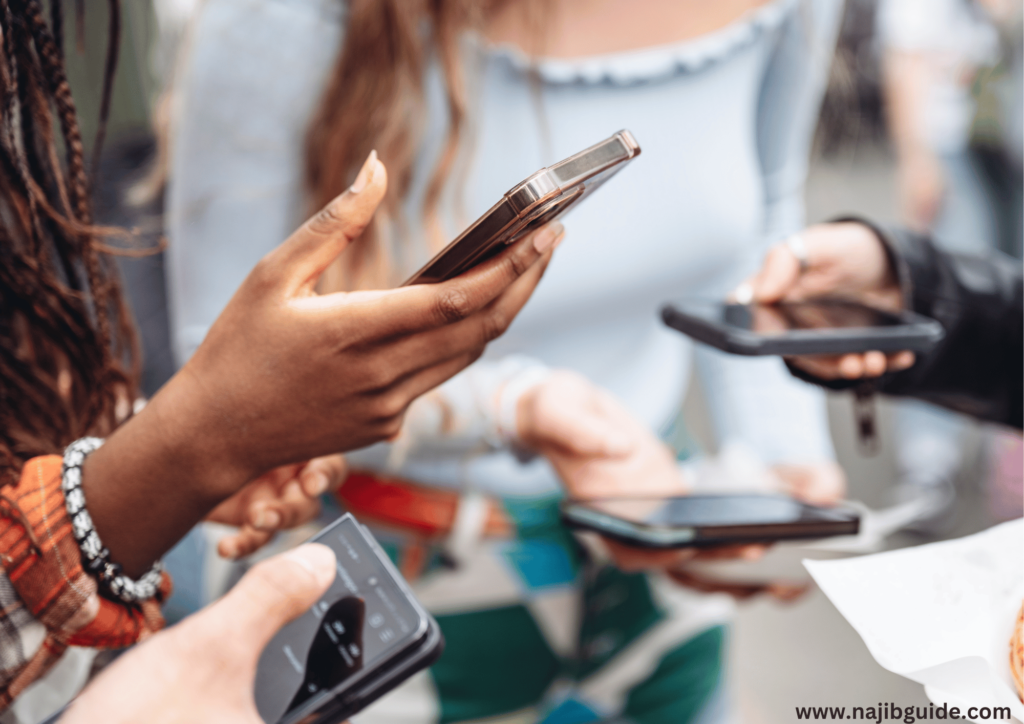Introduction
Social media has revolutionized the way that society informs, educates, and otherwise interacts with–and is impacted by–the world. From connecting people from diverse walks of life around the planet to influencing popular opinion, almost everything has come within the ambit of social media. However, its influence is not without challenges, with issues like misinformation, mental health concerns, and privacy risks arising. This article examines the pros and cons of social media to comprehend the multifarious effect it is having on society.

1 The Rise of Social Media and Its Role in Modern Society
From being a novelty, social media has now turned into a need, something that is fast becoming indispensable in life. Centers of personal interaction, entertainment, and even commerce have emerged on platforms like Facebook, Instagram, and TikTok. One can keep abreast of current events through social media, get back in touch with long-lost friends, and publish details of their life in real-time. This rapid growth has spawned over-dependence worries with virtual interactions in equal measure. The move toward online interaction often comes at a cost in terms of face-to-face communication, thus reshaping both shared social values and individual interpersonal dynamics. The pervasiveness of the role that social media plays in modern society indeed makes it a very double-edged sword.
2 Connecting the World: Social Media’s Role in Global Communication
Social media tore down the geographical divides, and people residing in two far-flung parts of the world get connected with each other in less than a second. It has become a necessity for people living long distances apart, cross-border projects, and cross-cultural exchanges. While the advantages are impressive, some challenges still remain. Language barriers and misunderstandings due to cultural differences often lead to conflicts. Furthermore, the spread of misinformation can happen across the globe, hence making it tricky for international relations to thrive. Yet, no other platform has the potential to build global harmony as social media does.
3 Empowering Voices:
Social media and Advocacy Movements social media has empowered voices to speak for social justice, equality, and the environment. Some movements, like #MeToo and #BlackLivesMatter, could garner momentum on these platforms; this much-included and powerful platform surely is enacting change in society. Concurrently, using these channels excessively has the potential to undermine these causes themselves. For instance, activism fatigue and performative allyship have significantly increased whereby people are doing very superficial actions without any real substance or commitment to a cause. Nevertheless, social media remains one of the building blocks of modern-day activism.
4 Educational Opportunities on Social Media Platforms
Social media is an educational tool that houses tutorials, webinars, and expert content. YouTube and LinkedIn are new avenues for lifelong learning and skills development. On the other hand, accuracy in information on social media does stand as an issue. There is the risk that unverified material could be misinforming or lead to incomplete education. Educators and learners alike need to engage with such platforms critically if they are going to benefit from them maximally.
5 Fostering Creativity and Innovation Through Social Media
Social media has opened avenues for creators to showcase their artwork, music, and innovative ideas. From unique talent-cum-influencers to brands experimenting with content marketing, social media is becoming more of a creative-thrusting culture. Originality might well be sacrificed at the altar of pressures to adopt trending ideas. Algorithms have a tendency to create an environment where popular is popular and little room is left for something really unique or niche to make its mark. It is in encouraging diverse expressions that social media can continue to sustain their creative potential.
6 The Use of Social Media in Building Professional Networks
Platforms like LinkedIn revolutionized professional networking. One could connect with peers, mentors, and even prospective employers. Social media proved a great tool for personal branding and career building. However, there is no replacement for the depth provided by networking in person. Another potential challenge of professional life is that competition in presenting an image as a professional can be stressful. In balancing authenticity and professionalism, social media can serve as a career development tool.
7 Mental Health Concerns Associated with Using Social Media
Social media use affects mental health to the extent that excessive usage creates anxiety, depression, and feelings of inadequacy in comparison to curated online personas of other people. And all this is further driven by issues like cyberbullying. Regarding these risks, some features were introduced by platforms for digital well-being, such as screen time reminders or settings for privacy. For this reason, mindful usage needs to be encouraged in order to take care of social media-related challenges to mental health.
8 Spreading Misinformation and Societal Impact
Social media’s rapid dissemination of information cuts both ways. While on one hand, it opens ways for sharing news; on the other hand, it allows the easy distribution of misinformation and fake news that polarizes societies and undermines trust. Such efforts include fact-checking services and algorithm tuning, but users themselves need to learn critical thinking and source evaluation in order to sort through the myriad content on social platforms.
9 Privacy in the Social Media Era
Social media sites create massive repositories of user information that raise significant privacy issues. Breaches and inappropriate uses of private data have generated controversies about user safety and site liability. More control and transparency will safeguard the user. Awareness among people about data privacy will empower them to make responsible choices in their life in the virtual world.
10 Social Media and Its Impact on the Behavior of Youth
Younger users are more prone to the influences of social media. While it is a source of entertainment and learning for them, at the same time, it is also promoting undesirable activities like cyberbullying, addiction, and body image disturbance. Parents, educators, and policymakers have to work together to create an online safe space for youth in that context. Some of these risks could be reduced to a certain extent by digital literacy and responsible use.
11 The Economics of Social Media: Opportunities and Pitfalls
Social media drives e-commerce, advertising, and influencer marketing. Companies utilize these platforms to increase their audience reach and enhance their revenues. This, however, also introduces some level of instability in economic activities, as changes to algorithms and even the unavailability of a network may hinder businesses. This brings into question the need to diversify strategies.
12 Social Media and Shaping Public Opinion
Social media has grown to become the most important tool of influence in shaping public opinion. Political campaigns, brand reputations, and debates on social issues are taking currents from online discourses. While this can be a positive influence, echo chambers and biased algorithms also distort perspectives. Any healthy public discussion demands openness to diverse opinions.
13 Addiction and Overuse: Finding a Balance in Social Media Use
The addiction to social media sites is increasing day by day. Users are investing too much time in these sites, leading to overuse. The overuse may hamper productivity, relationships, and health altogether. It enables them to regain control by fostering balance through time management tools and digital detoxes. Living in moderation will help them have a healthier relationship with social media.
14 The Positive Role of Social Media During Crises and Emergencies
Social media can be very helpful in case of crises. Communication can take place in real time, along with fundraising and coordination. Social media have been particularly useful in natural disasters, public health emergencies, and humanitarian operations. Information risks during disasters can complicate responses. Ensuring that proper and verified information is relayed during emergencies is key in maximizing the full benefits of social media.
15 Striking a Balance: Leveraging Social Media for Good
While there are certain downfalls associated with social media, the good it can do is without measure. The balance between benefits and their challenges needs careful use on the part of users, better platform policies, and education. Emphasizing empathy, authenticity, and accountability in online interaction can help harness social media for good in society.
Conclusion
Social media has indeed reshaped society, carrying with it amazing prospects and at the same time great challenges. While there is no avenue that can link people, inform them, and enable them to this degree, a host of ills such as misinformation, mental health concerns, and privacy risks do persist and demand concerted attention. By encouraging responsible usage, improving digital literacy, and ensuring accountability for the diverse range of platforms, society will be in a position to capitalize on the utmost benefits derived from social media, while at the same time minimizing the negative aspects associated with its use.


